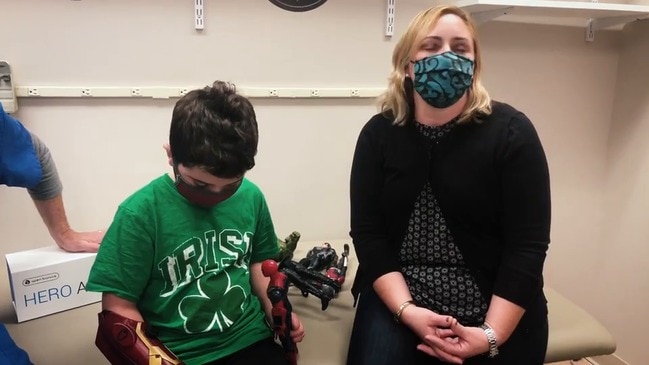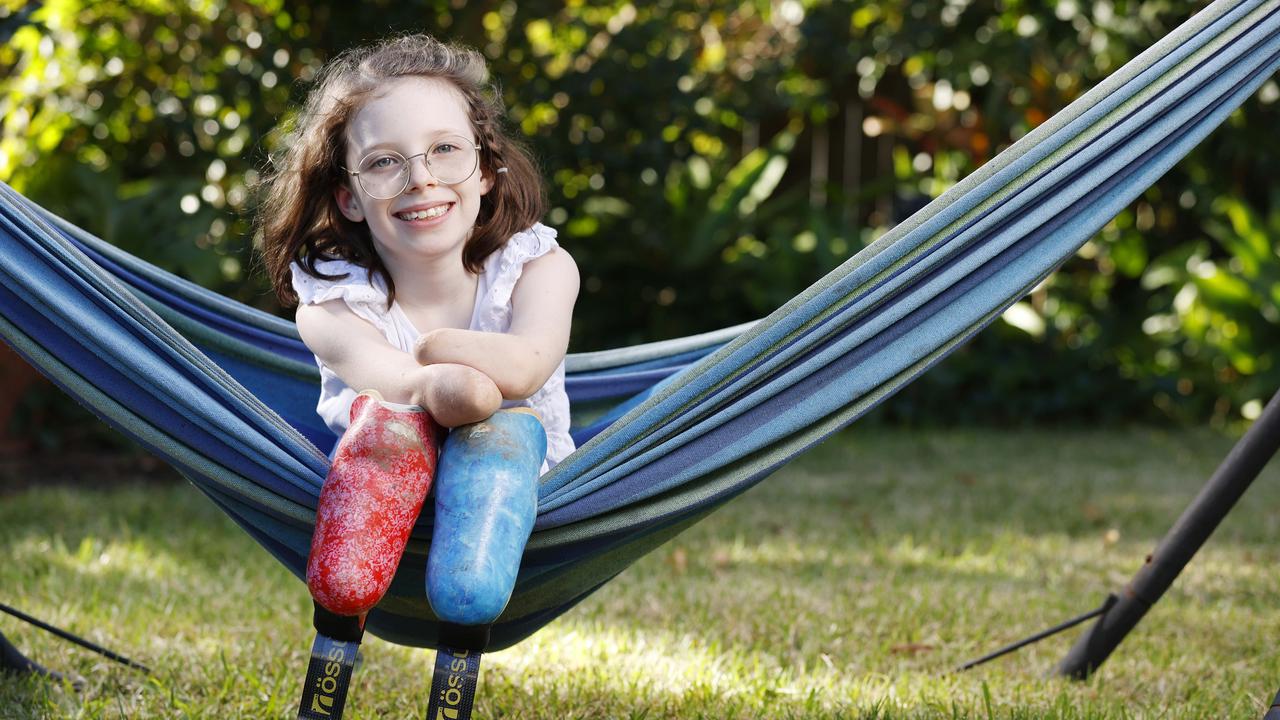Streptococcal A breakthrough: Qld scientists begin clinical trial for vaccine
Queensland scientists are leading a global medical breakthrough in the fight against a bacteria that can cause deadly diseases like sepsis, meningitis and toxic shock syndrome.

QLD News
Don't miss out on the headlines from QLD News. Followed categories will be added to My News.
Queensland scientists are leading a global medical breakthrough in the fight against Streptococcal A, a bacteria that can cause deadly diseases like sepsis, meningitis and toxic shock syndrome.
A team of international researchers from Griffith University and the University of Alberta this month begin human clinical trials for a Strep A vaccine they hope will induce long-lasting immunity against the deadly pathogen which kills more than 500,000 people each year.
It is a leading cause of infection-related death in the world.
Griffith University researchers identified two small molecules (epitopes) found on every Streptococcus A strain and combined them into a vaccine candidate designed to enhance the body’s immune response against even the most virulent strain.
Lead researcher Professor Michael Good from Griffith’s Institute for Glycomics said previous Streptococcal A vaccine research had been slowed by the enormous diversity of the pathogen but that his vaccine design is based on presenting key epitopes to the immune system that represent its Achilles heel.
“This gives us a novel strategy to finally make a successful vaccine to protect against multiple Strep A strains,’’ he said.
“There is currently no vaccine available and natural immunity to Strep A takes years to develop. This is because there are multiple strains and it is a highly virulent organism that subverts immunity.”

Distinguished Professor Lorne Tyrrell OC and Nobel Laureate Sir Michael Houghton from the Li Ka Shing Applied Virology Institute at the University of Alberta, who are sponsoring the clinical testing, said streptococcal disease was a major cause of global morbidity.
“Our Li Ka Shing Applied Virology Institute is dedicated to preventing major viral and bacterial infections where there is serious unmet medical need. Professor Michael Good holds an adjunct position at the University of Alberta and we are delighted to be helping him and our colleagues at Griffith University in working to curb this dangerous global epidemic which afflicts many Canadians, including Indigenous peoples,” the professor said.
Dr Manisha Pandey from the Institute for Glycomics said repeated infections can also cause auto-immune complications such as rheumatic fever and rheumatic heart disease.
“In Australia, Aboriginal and Torres Strait Islander peoples suffer the highest rate of rheumatic heart disease in the world.”
The trials will take place at the University of Alberta, Canada, within the NACTRC clinical trials centre and are due to commence on November 21.
In Australia sepsis contributes to up to 50 per cent of all hospital deaths and causes at least 8700 deaths each year. Those who survive can lose limbs.
Brisbane’s Mia Wilkinson, 9, now lives as a quadruple amputee following a fight with sepsis which developed from a dose of the flu.
Her mum Amy said if Mia had been given a vaccine before she became ill, her limbs may have been saved.
“We are so lucky to live in a world where universities are carrying out this important work. Hopefully these clinical trials will result in a vaccine that will reduce or wipe out illness and deaths from Strep A infections,” she said.




